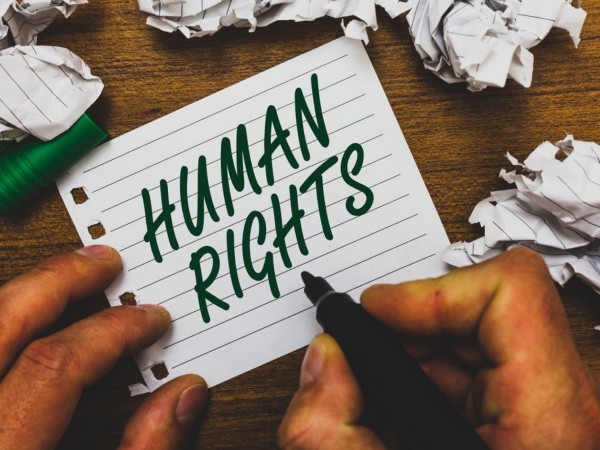A spouse was refused entry to the UK.
Consider this hypothetical case scenario. Under UK Law, a spouse was refused entry to the UK. The couple did not marry in the UK. The spouse was denied the right to entry by immigration who did not believe her entry to the UK was a genuine visit. S/he feels their human rights were violated because s/he was denied the right to a family life.
The right to enjoy family life
Every person has the right to enjoy family relationships without interference from government under the Human Rights Act. This comprises the right to live with the family and, where this is not conceivable, the right to consistent contact. For the purpose of the Article 8, ‘Family life’ can comprise the connection to family members. This is not only confined exclusively to families established on marriage. It also applies to unmarried couples, an adopted child and the adoptive parent, and a substitute parent and adopted child.
In the United Kingdom, human rights are sheltered by the Human Rights Act (1998). The Act gives effect to the human rights set forth in the European Convention on Human Rights (ECHR).
What is in Article 8, ECHR?
Article 8 of the European Convention on Human Rights, 1998 states the right to respect for private and family life and accordingly.
- “Everyone has the right to respect for his private and family life, his home and his correspondence.
- There shall be no interfering by a public authority with the exercise of this right except such as is in accordance with the law and is necessary in a democratic society in the interests of national security, public safety or the economic well-being of the Country, for the prevention of disorder or crime, for the protection of health or morals, or for the protection of the rights and freedoms of others”.
What does Article 8 protect?
The determination of the right under inspection is “to protect the individual against arbitrary action by the public authorities”. This persistent right is accomplished by guarding the four proportions of personal self-sufficiency of an individual. Importantly, this is one’s private life, family life, home and correspondence.
Article 8 dividends its construction with all the Convention’s qualified rights. The first section states the comfortable assurance that Article 8 provides the relevant rights and freedom:
a)”the right to a fair hearing in civil and criminal matters;”
b)”the right to respect for private and family life;”
c)“the right to an effective remedy.”
The second section contains derogation clauses that the State may rely upon to confine rights and freedoms for the individual. With regards to the spouse refusal of entry into UK, the following provisions are our immediate concern:
a)”arbitrary and unlawful detention;”
b)”discrimination in the enjoyment of the rights and freedoms set out in the Convention;”
c)”expulsion or denial of entry by a State in respect of its own nationals. ”
The role of the Court
In Article 13, the European Convention specifies the right to access to Court. The European Court of Human Rights, ECHR, receives applications regarding complaints made by individuals or by the State. More often than not, the Court does not contest the legality of a legal intervention by the State into an individual’s pleasure of the right. It does, however, seek to ensure that the State protects the rights and freedoms of the individual. Additionally, Court needs to know the effect of the right on the social needs and ideals of the individual with regard to an effective remedy or reparation. Even more so, it does require the party to demonstrate that the measure which is being challenged is essential in a democratic society.
The remedies for the violation of human rights
There are various remedies provided by the human rights conventions designed for the violation of a person’s human rights under Article 8 and other provisions. The remedies have comparatively been contained within the provision on fair trial, albeit partly dispersed in the provision. Article 13 ensures that a person can access a remedy if their rights are violated. Additionally, Article 47 gives ‘right to an effective remedy and a fair trial’ within a reasonable time and access to legal aid if applicable.
Effective remedies must be available in the domestic courts to a person whose human rights have been violated. These include an apology, a correction, compensation, a cessation, an explanation, an inquiry, a reconnection, a reinstatement, or a reply.
To be effective, the remedy should be sufficient, accessible, and delivered promptly. It should be practical and relevant to the needs of the complainant. Of course, there would have been no restricting barriers to prevent a fair trial in the first place.
The Human Rights Act UK
The Human Rights Act (1998), UK, purports to effectively implement the Articles in European Convention. In this scenario, the human rights of the spouse have been violated, so s/he can file for judicial protection of her rights or any other above available remedies. This is conditional upon the rights and freedoms enjoyed by others via the protection of the State. For example, the spouse must not be a threat to National Security or endanger the lives of others.
This article is a snapshot of how aspects the European Convention and the Human Rights Act UK enable the rights and freedoms of a person. It offered a broad consideration of how the ECHR and Human Rights Act could apply to the case scenario, ‘A spouse was refused entry into the UK. The detail required in pursuing a case or application to the ECHR cannot be underestimated.
Contact our consultants regarding issues of your concern or try out some of our courses that interest you.
Sign up to our newsletter here


Recent Comments